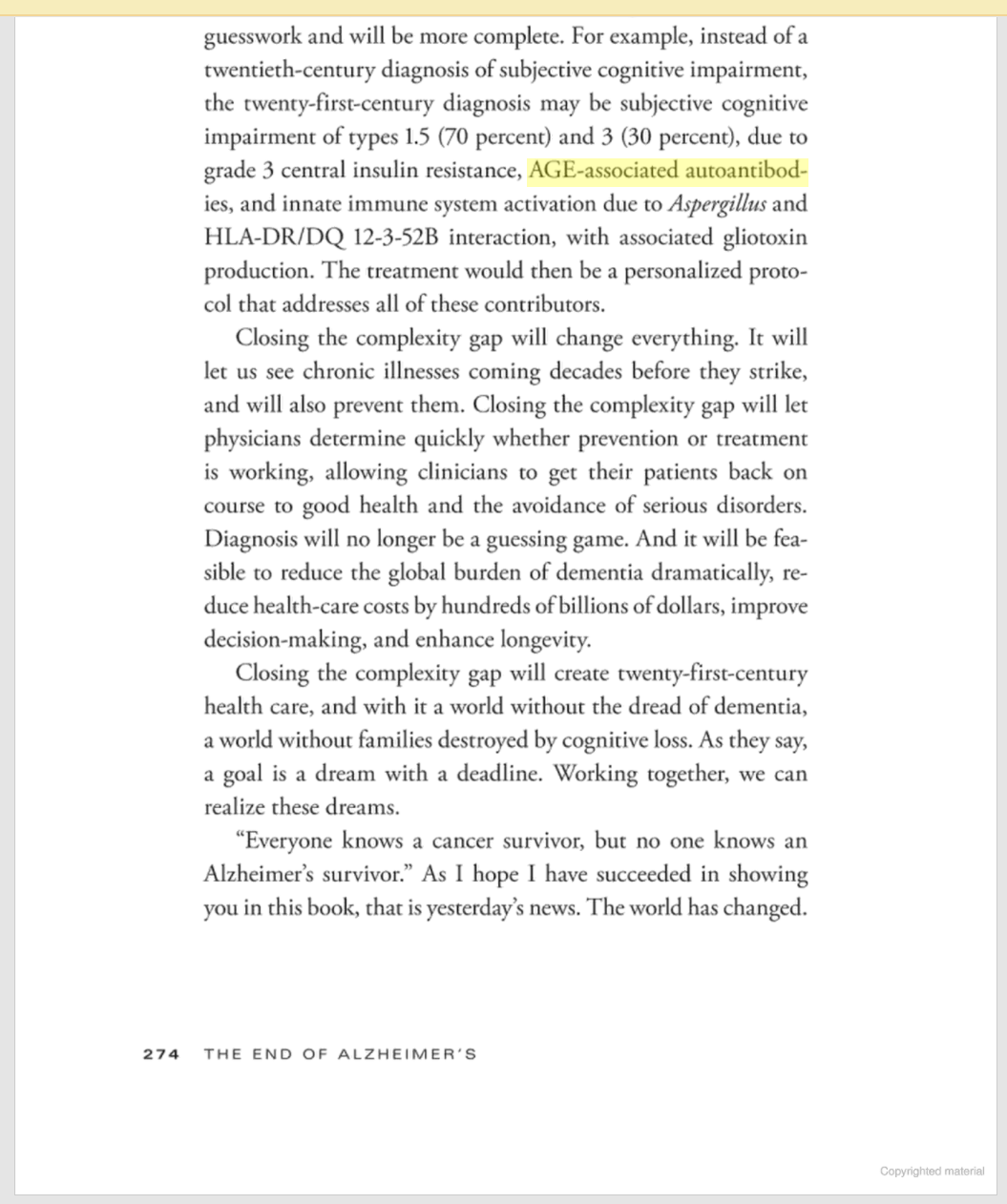What is the "AGE" in AGE-associated autoantibodies? Please describe it if you can.
It was mentioned in the book "The End of Alzheimer's: The First Programme to Prevent and Reverse the Cognitive Decline of Dementia" by Dr Dale Bredesen (link to the relevant page on google.books, screenshot below).
Here is the full sentence:
For example, instead of a twentieth-century diagnosis of subjective cognitive impairment, the twenty-first-century diagnosis may be subjective cognitive impairment of types 1.5 (70 percent) and 3 (30 percent), due to grade 3 central insulin resistance, AGE-associated autoantibodies, and innate immune system activation due to Aspergillus and HLA-DR/DQ 12-3-52B interaction, with associated gliotoxin production.
